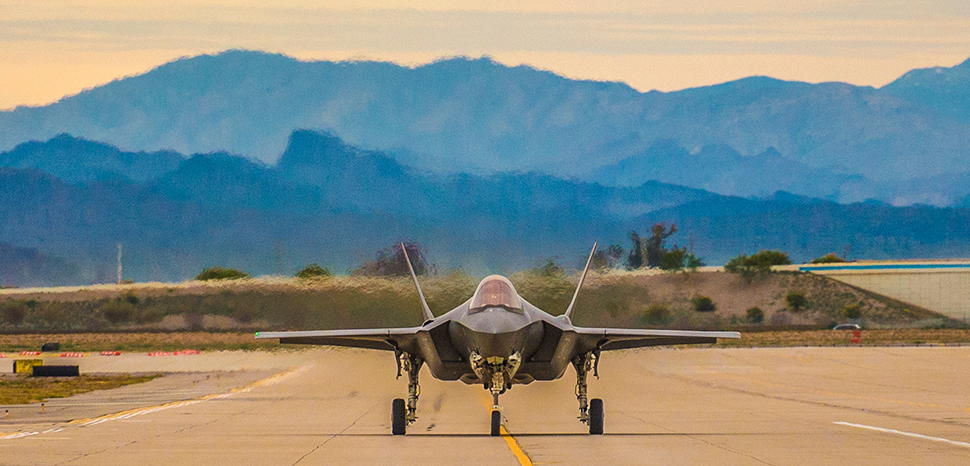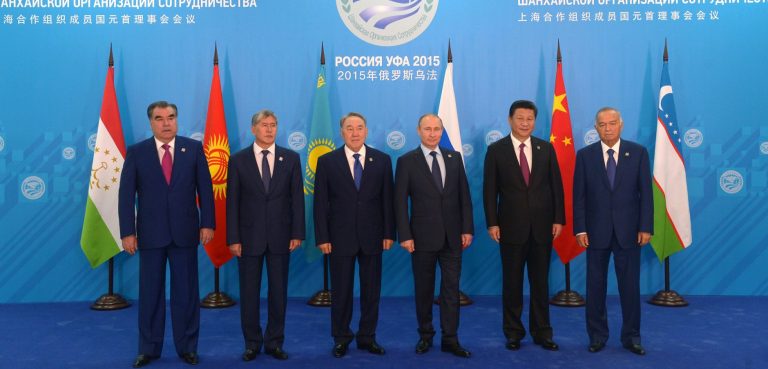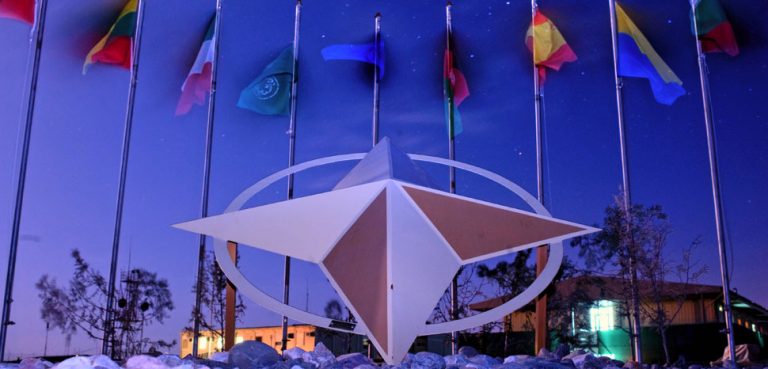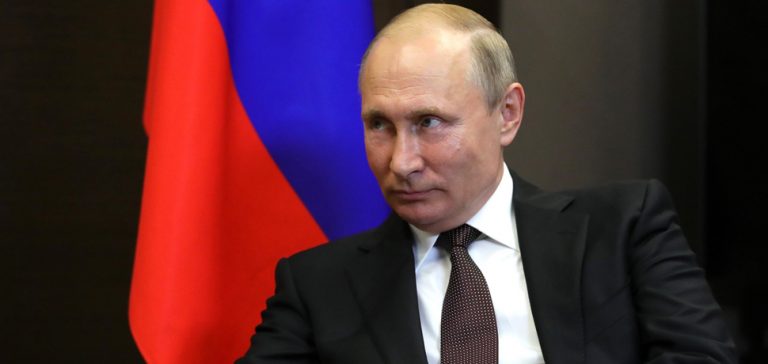The general public in Western European countries challenged the doctrine of nuclear deterrence in the 1970s and 1980s, when almost all Western European countries were caught up in protests against the deployment of new nuclear weapons.
Numerous surveys have continued to demonstrate this public skepticism about nuclear deterrence, and a substantial portion of the European publics have been largely in favor of withdrawal of nuclear weapons from Europe. The most famous of which was the NATO public opinion survey on nuclear weapons conducted in January 2020, before the Russian invasion of Ukraine.
Moreover, a 2019 YouGov poll commissioned by the International Campaign to Abolish Nuclear Weapons (ICAN) found a stark rejection of nuclear weapons in the four EU states hosting US nuclear weapons on their soil: Belgium, Germany, Italy and the Netherlands.
Nuclear deterrence in the wake of the Ukraine war
In June 2023, President Vladimir Putin announced that Russia had moved a number of its nuclear weapons to Belarus, its ally and neighbor, with more nuclear weapons on the way, and that “by the end of the summer, by the end of this year, we will complete this work.”
In January 2024 the defense minister of Belarus declared that their country will put forth a new military doctrine that for the first time provides for the use of nuclear weapons. Moreover, Security Council Secretary Alexander Volfovich said the deployment of Russian nuclear weapons in Belarus is intended “to deter aggression from Poland,” a NATO member.
Earlier this year, on 30 June 2023, Prime Minister Mateusz Morawiecki, responding the Putin’s intentions mentioned the above declared Poland’s interest in hosting nuclear weapons under NATO’s nuclear-sharing policy, citing the reported deployment of Russian nuclear weapons to its Kaliningrad region and to Belarus: “Due to the fact that Russia intends to site tactical nuclear weapons in Belarus, we are all the more asking the whole of NATO about taking part in the nuclear sharing program,” Morawiecki said in a June 30 statement. “We don’t want to sit with our arms crossed while Russian President Vladimir Putin escalates a different type of threat.”
Soon after, the head of Poland’s National Security Bureau, Jacek Siewiera, said Poland was interested in certifying its F-35A Lightning II aircraft (due to be deployed in 2024–25) to deliver B61 free-fall nuclear bombs, in preparation for possible inclusion in NATO’s arsenal of dual-capable aircraft.
It is likely that any forward deployment of US B61s tasked to NATO would be located at the Polish air bases set to house their F-35As: Świdwin, Poznań-Krzesiny and Łask. NATO would view the deterrence value of stationing nuclear weapons at these locations and turning them into dual-capable-aircraft bases as a function of the vulnerability of the weapons to attack, their credibility of use, and their capability to strike targets in Belarus and Russia.
Jake Sullivan, who is actively supporting an idea of further communication with Russia toward the control over nuclear weapons, has not responded if these requests addressed by Poland would be satisfied by the United States. In July 2023, Sullivan sharply rejected the idea, voiced increasingly by some Washington strategists, that Biden is overplaying the Russian nuclear threat and deterring NATO from all-in support for Kyiv. The hawks, he said, argue: “This nuclear threat is complete nonsense. Don’t worry about it at all. It’s to be completely discounted.” Sullivan rebuffed the no-worry approach: “It is a threat. It is a real threat. It’s one we need to take seriously. And it’s one that does evolve with changing conditions on the ground.” As the philosophers say, this issue of nuclear risk is “contingent.” It’s neither inevitable nor impossible.
After Poland’s request, US National Security Council spokesman John Kirby told reporters “I have nothing to say about any conversations of this type.” It’s still unclear whether Washington is willing to give the idea serious consideration, but the intention of Poland is clear. It seems that this issue is a part of the larger issue – triggering a new dialogue in the wake of the new START treaty.
What is the attitude in Europe toward nuclear deterrence post-Ukraine war?
In 2023, Michal Onderco, Michal Smetana, and Tom W. Etienne addressed attitudinal change in Europe through surveying the same respondents in both Germany and the Netherlands at two time points—one before the war, in September 2020, and one during the war, in June 2022. They compared how the public attitudes towards nuclear weapons changed in the aftermath of the Russian invasion of Ukraine.
The 2022 Russian invasion of Ukraine strengthened the nuclear deterrence attitudes in Germany and the Netherlands remarkably. As concluded by the authors, the number of German respondents who are convinced of the deterrent effect of nuclear weapons increased by 14 percentage points (from 40 per cent to 54 per cent) for deterrence against non-nuclear attacks, and by an even more substantial 23 percentage points (from 36 per cent to 59 per cent) for deterrence against nuclear attacks. In the Netherlands, the increase is much smaller, but still substantial, with an eight-percentage-point increase for both deterrence against non-nuclear attacks and deterrence against nuclear attacks. Importantly, more than half of the respondents in both the Netherlands and Germany are now convinced that the stationing of nuclear weapons on their territory deters nuclear attacks on other NATO countries.
What about an attitude in Europe to an alternative method of deterrence – conventional weapon deterrence? NATO’s Annual Tracking Survey collected public opinion on the alliance. The December 2022 survey showed that support for higher defense spending rose just slightly since Russia’s invasion of Ukraine, and with large variance among the member countries. There are only three countries among 30 in NATO – Sweden, Norway and Bulgaria, where more than 50 per cent of public supports an idea to increase conventional military expenditures.
What about Germany and the Netherlands? Less than 30 per cent and 30 per cent of people respectively support an ideal to increase conventional military expenditures. Therefore, nuclear weapon deterrence is much more favored by citizens of European countries than conventional deterrence. Probably, it is less expensive to maintain it and more effective as a prevention measure.
It seems that the recent attitude of Europeans to the issue of nuclear deterrence as a regional security mechanism, triggered by the 2022 Russia invasion of Ukraine, comes back to the late British prime minister Margaret Thatcher’s view: “I want a war-free Europe. A nuclear-free Europe I do not believe would be a war-free Europe.”
It seems that the idea of nuclear deterrence is experiencing a renaissance, with growing support among both citizens of European countries and politicians. But to be effectively and securely applied by all participants, nuclear deterrence requires an active diplomacy between larger actors that could influence all the rest still-unresolved geopolitical issues.
On September 29, 2023 NATO Review addressed a conclusion that deterring Russian nuclear use against NATO will thus remain an urgent imperative, even after the war in Ukraine ends. This is a call for a dialogue within NATO and outside – toward NATO opponents, thus making nuclear deterrence a more predictable issue and providing the room for maneuver and an ability to advance the concept of deterrence as a whole.
The views expressed in this article belong to the authors alone and do not necessarily reflect those of Geopoliticalmonitor.com.




